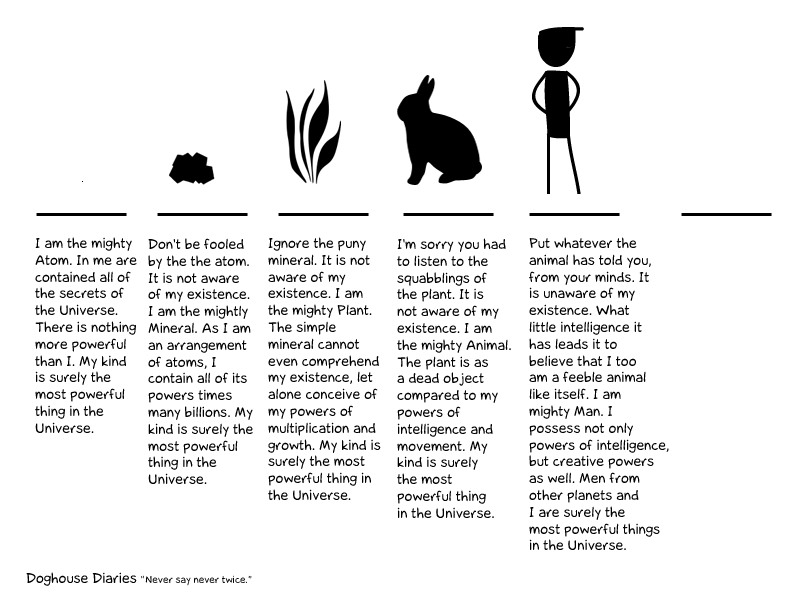Thanks Loner, and I won't. It's not disagreement that bothers me, I like a good argument and thinks it helps strengthen an idea if its a good one or point out its error if its a bad one. I am bothered when I make a blatant oversight in a thought process, but understand I'm not perfect and feel the best thing to do is point it out, I often try to argue myself out of mistakes which I don't like to do.
I also have a habit of falling into the trap of feeling just because I have a thought its worth sharing. Uncertain and incomplete ideas are fine with me, but thoughtlessness bothers me a bit on my part. I'm talking a little more in general now and a little more so about myself IRL, but it is something that I try to keep on my mind.
A point I wanted to make in this thread was largely about uncertainty which is something difficult to describe. That comes with me seeing things as somewhat layered as well, which I often confuse myself just thinking about. I think on one level there's the real world, day-to day level of things, and then a more intangible but still somewhat observable if not understandable level, and then there's the things on the metaphysical level where at best things are a guess, unless people know more than I do which I wouldn't discount.
I think on that real world level, things like benevolence or malevolence don't really come in to play much at all. I think that level is very Hobbesian with our actions reflecting a desire to survive and serve our own interests. I think for some people their best interest includes the feeling they get when other people are happy. I think for some people it doesn't. And on this level while we can agree the acceptability of actions, either officially through laws or unofficially through social taboos or the good deeds segment on the nightly news, I don't feel they have much to do with goodness. Murder is generally done with malevolence, but that's not why its illegal. It's because its beneficial to everyone not to have to worry about getting murdered. And I think this level is the easiest to look at objectively, as it is more defined collectively than individually. I think people can be valued on this level and it would be silly to ignore the collective opinion, but personally I don't take much stock in it.
I look to that next level where people's ideas and intentions stem from. This is where things tend to get complicated for me though, since I don't think we can ever really know this for anyone other than ourselves. (Most of us) can't mind read or feel directly the emotions of others, and as a result when it comes to knowing what's in the hearts and minds of others we have to trust them and trust our judgement which is biased by our only direct source which is ourselves. To put it extremely, someone may feel the same way murdering people that I do when I run down and return a person's wallet who dropped it on the street. If that were the case, I think it makes things very complicated. It's why I tend to believe that perspective is everything. Being more certain of things on this level, and feeling one is able to judge character more easily than I think possible would change things of course, but I struggle to see things that way. So basically, I think on the first level we can identify and avoid/prevent people from acting crappy, but on the second level its very difficult to conclude with any certainty the goodness of the intent.
The final level I I tend to avoid thinking about since it tends to put me into an existential crisis. On this level I image this is where the feelings and intentions or the desires from the previous two levels come from. There's the biological idea that we are just slaves to our genes or that we inherit our behaviors, or theological views that argue for predestination and reject the concept of free will completely and assume all we do has already been laid out. Or behaviorist with Tabula Rasa's who think we're all born blank slates and everything about us is completely dictated by the environment around us. Things feel particularly arbitrary on this level to me. I hardly feel justified and concluding someone is an asshole if in reality it has nothing to do with them but something out of their hands completely. The are possible explanations on this level I feel I couldn't even fathom though, or I hope I guess, which is why I try to not think to much about it if I can help it.
I also didn't know how relevant this actually was to your thread, you might be talking about something completely not related to this. If it's completely off topic you can ignore it



